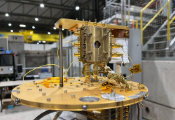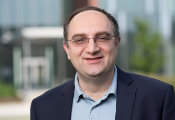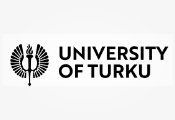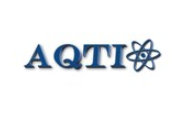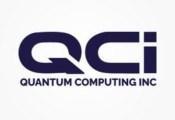URI Receives $5 Million NSF Grant Aiming To Broaden Participation in Quantum Information Science
KINGSTON, R.I. – Oct. 2, 2025 – The University of Rhode Island, in collaboration with the Pittsburgh Quantum Institute, has been awarded a five-year, $5 million grant through the National Science Foundation’s Expanding Capacity in Quantum Information Science and Engineering (ExpandQISE) program that aims to increase research capacity and broaden participation in quantum information science and engineering and related disciplines.
As part of the project, the University of Rhode Island is working with faculty members of the Pittsburgh Quantum Institute to improve the robustness of qubits, while also addressing the need for quantum workforce development. Qubits, short for quantum bits, are the basic units of information in quantum computing that enable quantum information processors to conduct computations impossible for today’s most powerful classical computers. However, they degrade over time.
“We want to find out why they [the qubits] fail,” said Leonard Kahn, professor and chair of the URI Department of Physics. “Part of the reason they fail is that the materials have a variety of different energy levels that couple to the environment, causing a leakage of information.”
Fabricating superconducting junctions, which are the pieces that go into the qubits, will be a significant component of this project. Kahn says quantum computers are not on people’s desks because the qubits rapidly decohere if they are not at very low temperatures or in highly regulated situations due to their sensitivity.
While quantum computing is making progress toward the goal of being able to operate reliably even when some of its qubits lose information, improving the overall hardiness of qubits and reducing the likelihood of information loss will help to bring productive quantum computing and “fault-tolerant” quantum computers much closer to reality and closer to everyday use.
“[The qubits] degrade over time. And when we talk about this, we’re talking microseconds or nanoseconds. Even if they hold up for a millisecond, that may not be enough,” Kahn said. “So, you’ve got to make sure that each time you go from one stage of a computation to the next, that enough qubits hold up to be able to complete the computation accurately.”
Funding will enable the University to hire two new faculty members in quantum science and support three graduate students through 2030. It will also provide for development of a quantum research lab—including the purchase of a dilution refrigerator which will allow the team to conduct low temperature work and testing onsite.
URI graduate students will go to the Pittsburgh Quantum Institute to train and learn how to use their machinery to manufacture superconducting junctions, bring samples back to Rhode Island and test them with the department’s equipment to better understand why qubits are not as robust as they should be. The Pittsburgh Quantum Institute members and industrial partners include Carnegie Mellon University, Duquesne University, the University of Pittsburgh, and the Naval Nuclear Laboratory.
“The point of this project is to build our expertise based on the experience of these larger institutions so that we can then become a hub for regional experimentation and theory,” Kahn said.
Among its many uses, Kahn says quantum computing can have impacts on supply chain management, enabling a company to review its inventory, determine how much product it needs as well as the best routes to send such products. The University is currently involved in proposals to use quantum computing for such efforts, Kahn says, and workforce development will be needed to help fill those expected computing-related vacancies within the market.
“Quantum workforce development is something that the federal government is actively pursuing. We are going to have a surge of job openings when quantum computing reaches fault tolerant productivity,” Kahn said. “We are on the cusp of the second quantum revolution and with that comes opportunity—whether we are training people to make a better quantum computer, or to be the person who understands their company well enough to help demonstrate how quantum computing can help. All of these people will be needed.”

